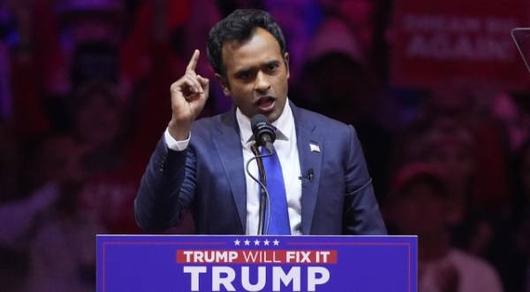 |
(AP/Yonhap) |
<이미지를 클릭하시면 크게 보실 수 있습니다> |
Department of Government Efficiency (DOGE) Co-leader Vivek Ramaswamy took to X to blame the Biden administration’s push to finalize $50 billion in chipmaking subsidies to be signed and awarded before President-elect Donald Trump takes office in January 2025.
He announced Monday that the Department of Government Efficiency will review every last-minute contract rolled out under the CHIPS Act.
“This is highly inappropriate: they’re accelerating spending ahead of the transition of power,” Ramaswamy said. He shared a video on X featuring an interview with U.S. Secretary of Commerce Gina Raimondo, in which she discussed her efforts to accelerate plans under the CHIPS Act.
While Ramaswamy’s scrutiny may resonate with some who advocate for fiscal caution, the issue raises a broader concern: foreign companies investing in the United States based on government assurances must not face broken promises. Policy reversals undermine confidence in the United States as a reliable economic partner. Any administration, regardless of its political leanings, should recognize the contributions of companies building advanced manufacturing facilities, particularly given their vital role in creating jobs and strengthening domestic supply chains.
The U.S. Department of Commerce pledged subsidies of $6.4 billion to Samsung Electronics and $450 million to SK hynix, two South Korean chipmakers that are pivotal to the semiconductor industry. The commitments are more than monetary transactions - they reflect a strategic alignment designed to bolster the U.S. semiconductor ecosystem amid fierce global competition.
At a time when global rivalry in semiconductor fields is more intense than ever, the United States cannot afford to send the wrong message. Upholding its commitments under the CHIPS Act is not just a matter of policy - it is a testament to its reliability as a global leader.
이 기사의 카테고리는 언론사의 분류를 따릅니다.
기사가 속한 카테고리는 언론사가 분류합니다.
언론사는 한 기사를 두 개 이상의 카테고리로 분류할 수 있습니다.
언론사는 한 기사를 두 개 이상의 카테고리로 분류할 수 있습니다.


